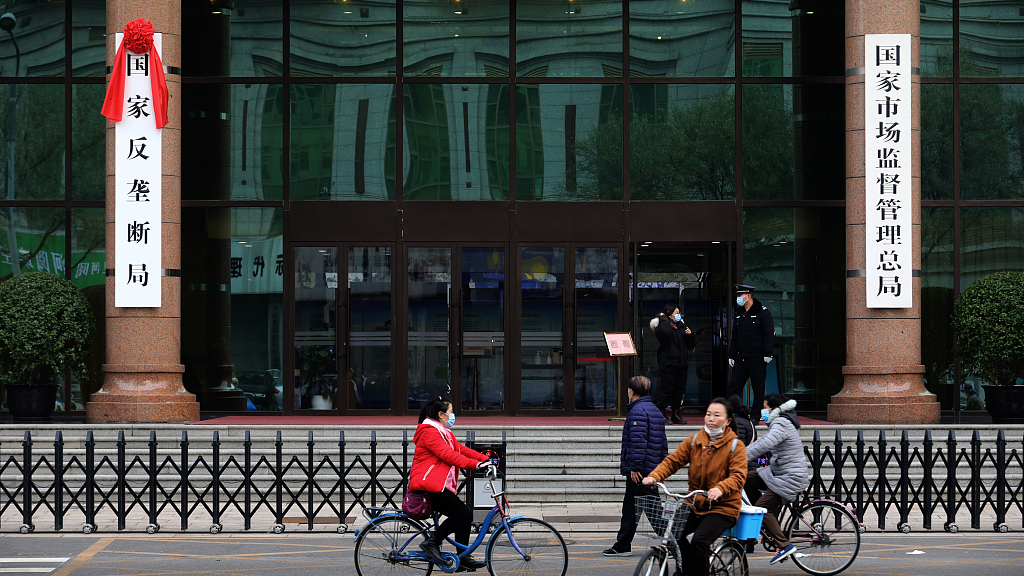
The State Administration for Market Regulation, Beijing, China. /CFP
The State Administration for Market Regulation, Beijing, China. /CFP
China's market watchdog, the State Administration for Market Regulation (SAMR), on Monday proposed new rules to better implement the recently revised antitrust law.
Nearly 14 years after its current Anti-Monopoly Law (AML) came into effect, China passed a revised version on Friday, which will come into effect on August 1.
Read more: China's efforts to protect competition in the latest anti-monopoly law
Besides slightly amending some current rules, the SAMR added several new ones in the draft, covering descriptions of what deals could be perceived as monopolistic to regulations governing how local authorities with the power to restrict competition should behave. The regulator is seeking public comment for its proposals before July 27.
One of the new rules defined the behavioral method of leveraging digital means, including data and algorithms, technology, capital advantages and platform rules, for reaching a monopoly deal.
The rule will allow better adaptation to the needs of anti-monopoly supervision in the context of the digital economy, regulate relevant competition behaviors, and promote healthy economic development, the SMAR said.
Echoing the new AML, the draft also stipulated a safe-harbor rule clarifying specific standards and procedures to provide more certain compliance guidelines and a more predictable environment for business operators, the SAMR said.
In the antitrust law amendment, it added a safe-harbor rule to vertical monopoly behavior stipulating the law shall not prohibit market operators that can prove their market share is lower than the standard set by the anti-monopoly law-enforcement agency.
Chinese regulators began cracking down on monopolies in late 2020 in multiple industries to prevent the disorderly expansion of capital and foster fair competition. E-commerce firm Alibaba Group was fined a record 18.2 billion yuan ($2.78 billion) for violating anti-monopoly laws, while the food-delivery platform Meituan was penalized 3.442 billion yuan for abusing its market dominance.
As the revised AML increased penalty fines putting fresh emphasis on the digital economy, the cost of illegality to enterprises will be greatly increased, and enterprises will also face greater compliance tests, Beijing-based law firm JT&N said on Saturday.

